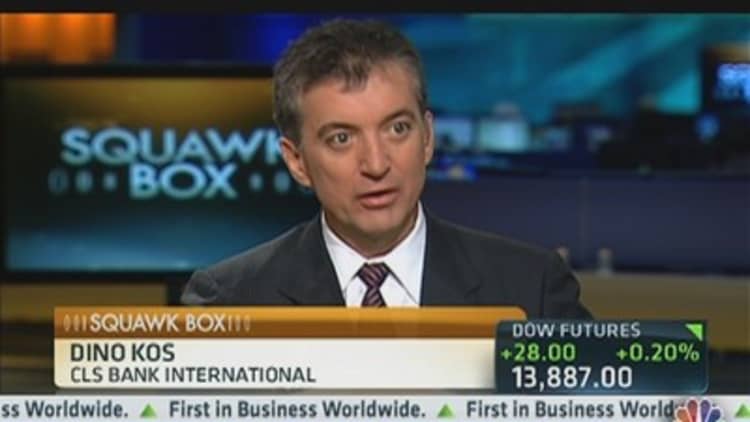
The financial markets have been paying too much attention to the minority views in the Federal Reserve minutes for the past two months, former New York Fed's Dino Kos told CNBC on Wednesday.
"I don't see that minority is getting much bigger. And certainly the way [Fed Chairman Ben] Bernanke was talking yesterday, they are set in their ways," Kos said in a CNBC "Squawk Box" interview.
(Read More: Can the Bernanke-Fueled Rally Last?)
Bernanke strongly defended the Fed's monetary stimulus efforts before a Senate panel Tuesday, easing Wall Street worries over an early retreat from the central bank's bond-buying program, known as quantitative easing. That concern had been triggered by minutes of the Fed's January meeting released last week.
Kos, head of global regulatory affairs at CLS Bank International, drew attention to particular comments from the Fed chief Tuesday, defending the third round of QE. "The benefits [Bernanke] said are clear: better economy, better housing, et cetera. The costs, he put the word 'potential,' these are potential costs."
(Read More: Gold Climbs as Fed Defends QE)
"[But] this is not an economy that's overall growing in a healthy way, even though [some] sectors really are doing better," Kos argued. "We're seeing fiscal tightening, the export sector is slowing down, Europe is still a problem, and signs of slowing in other parts of the world."
He added, "What are you left with? Fourth-quarter growth, which was reported at flat — down a tenth [of a percent]. That's going to be revised up. Let's say to 1 percent. What does the first quarter look like: One handle, as well."
Kos said he thinks QE estimates of six to nine more months are on the low side: "You'll see QE longer than that."
"Investors are going to try to front-run the Fed," he added, adding that "they will try to anticipate" when the bond purchases will end.
Bernanke goes to the House Wednesday, in part-two of his semi-annual Monetary Policy Report.
—By CNBC's Matthew J. Belvedere; Follow him on Twitter @Matt_SquawkCNBC. Reuters also contributed to this report.


